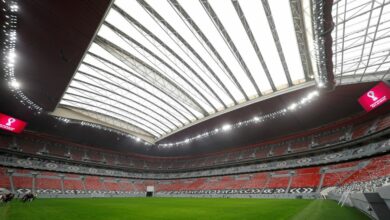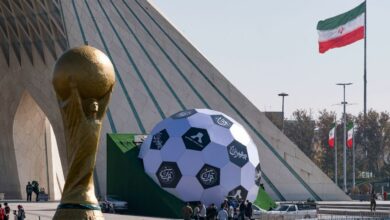I have been closely following the battles waged by FIFA President Joseph Blatter to defend the rights of the soccer federation and its World Cup sponsors against any competitors. Most of the sponsors are major companies that have spent around US$1.2 billion to win exclusive advertising rights at World Cup games, as well as rights to use the World Cup logo and colors to promote their products.
Blatter will not be able to keep the issue of World Cup advertisers and sponsors covered up for long. Journalists around the world have already started scrutinizing this matter and uncovering underhand deals. A few years back, British journalist David Yallop published a book entitled How They Stole the Game,exposing the bribery and rigging involved in the voting process to decide which country would host the Cup.
FIFA has so far engaged in 1500 battles to protect the rights of its sponsors, whose claims in many cases have not been entirely rightful. Sponsors have often offered money under the table to secure FIFA’s full protection, while less privileged competitors have usually paid the price. Street vendors and kiosk owners, for example, have been cleared out of areas surrounding the stadiums where Cup matches are played.
One of the most recent battles saw FIFA take on the Dutch-owned Bavaria beer company after it sent 36 girls in orange mini-skirts to attend last week’s match between the Netherlands and Denmark. FIFA considered the display to be ambush advertising; the girls were immediately removed from the stadium and two were arrested. They were eventually released on the condition that they do not show up at any other matches during the tournament.
Even though their outfits did not carry the official Bavaria logo, FIFA insisted on removing the girls from the stadium, claiming they were dressed provocatively. Fans however know the girls were not removed due to moral concerns, but rather to protect FIFA’s own commerical interests.
Soon afterwards the president of Bavaria sent a cynical letter to Blatter thanking him for the free and effective publicity, and pointing out that even official World Cup sponsors–whose sponsorship deals amount to roughly one third of FIFA’s tournament revenues–have not received such a reward.
Surely there are other secrets we do not yet know about. Why is Blatter always talking about Twitter? How can we tell whether or not he is paid to make these statements? Such doubts are especially warranted after we recently discovered that the public dispute between soccer greats Abedi Pele and Diego Maradona was simply a staged advertisement for French fashion house Louis Vuitton’s stores in Paris.
Translated from the Arabic Edition.




